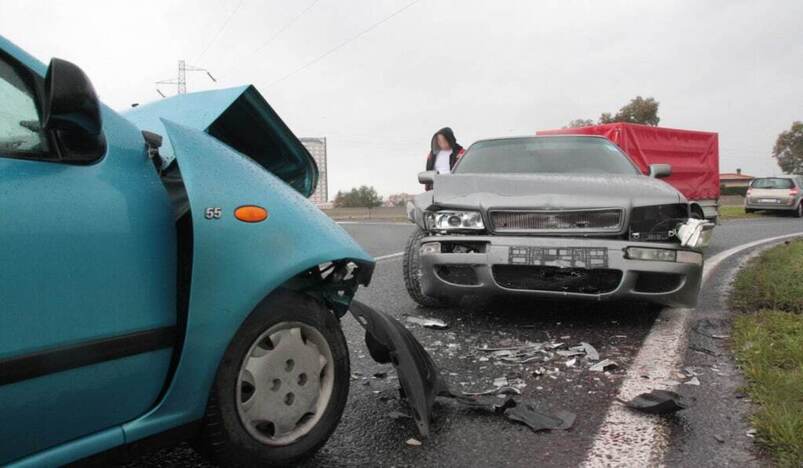
Car Accidents in Busy City Roads
Navigating city streets can be challenging, with constant traffic, unexpected stops, and plenty of distractions. A split second of inattention can lead to serious consequences.
Whether you're heading to work, running errands, or just out for a drive, staying alert and following a few simple safety tips can help you avoid accidents and keep your journey smooth. Let's get into it!
Stay Aware of Your Surroundings
Awareness is key to preventing car accidents. Always keep your eyes on the road and stay focused on driving.
Watch for pedestrians, cyclists, and other vehicles. Most accidents happen because of driver mistakes, often due to distractions. Avoid using your phone and only adjust controls when your car is stopped to keep your full attention on the road.
Follow Traffic Rules and Signals
Following traffic laws is essential in busy city areas where cars are everywhere. Always stick to speed limits and obey traffic signals.
In some places, like Qatar, running a red light can lead to heavy fines, but the real danger is causing auto accidents. Make sure you understand local traffic rules, as they can be very different from what you're used to in other countries.
Keep a Safe Following Distance
Tailgating is a common problem in busy city traffic, but keeping a safe distance from the car ahead gives you more time to react. A good rule is to stay at least three seconds behind the vehicle in front. If it's raining or foggy, increase that to five seconds since it takes longer to stop and it's harder to see.
Use Turn Signals Properly
An easy way to prevent car accidents is to use your turn signals when turning or changing lanes. This lets other drivers know what you're doing and helps avoid confusion.
Many people forget to signal at important moments, which can be dangerous. Make it a habit to use your turn signals early to stay safe on the road.
Be Extra Cautious Near Pedestrian Areas
Pedestrian crossings, school zones, and shopping areas tend to have more people walking around, making accidents more likely. In busy city areas, slow down and stay ready to stop for pedestrians.
Not yielding can lead to serious legal trouble and, more importantly, dangerous accidents. Many road fatalities involve pedestrians, so staying alert is key to keeping everyone safe.
Stay Calm and Collected in Heavy Traffic
Heavy traffic can incite frustration and lead to rash decisions. Staying calm is essential for making rational choices. Avoid aggressive driving behaviors, such as weaving in and out of lanes.
This not only endangers you but also other road users. Instead, give yourself extra time to reach your destination, which can help reduce stress and drive more safely.
Listening to calming music or podcasts can ease tension during long waits. Practice deep breathing if you feel impatient—inhale for four seconds, hold, then exhale slowly. Keeping a relaxed posture prevents fatigue and irritation. Remember, traffic is temporary, but reckless actions can have lasting consequences. Plan alternate routes in advance using navigation apps to avoid congestion. Patience not only keeps you safe but also sets a positive example for other drivers.
Prioritize Safety on Urban Roads
Car accidents can be serious, but staying safe on the road can help prevent them. Pay attention to your surroundings, follow traffic rules, keep a safe distance, use turn signals, and be extra careful near pedestrians.
These simple steps can help you and others stay safe while driving. Remember, safe driving starts with awareness and responsibility. Are you ready to make smarter choices and avoid accidents?
Always check blind spots before changing lanes, especially in busy areas. Avoid distractions like phones, and if needed, pull over to handle calls or messages. Night driving requires extra caution—ensure headlights are functional and reduce speed in low visibility. Regular vehicle maintenance, like checking brakes and tires, prevents unexpected breakdowns. Defensive driving courses can sharpen your skills and reaction time. Small habits, like adjusting mirrors before driving, contribute to long-term safety.
Is this article helpful? Keep reading our blog for more.
.jpg)
Qatar Secures Place Among the World's Top 10 Wealthiest Nations
.jpg)
Hamad International Airport Witnesses Record Increase in Passenger Traffic

Saudi Arabia: Any visa holder can now perform Umrah

What are Qatar's Labour Laws on Annual Leave?
Leave a comment